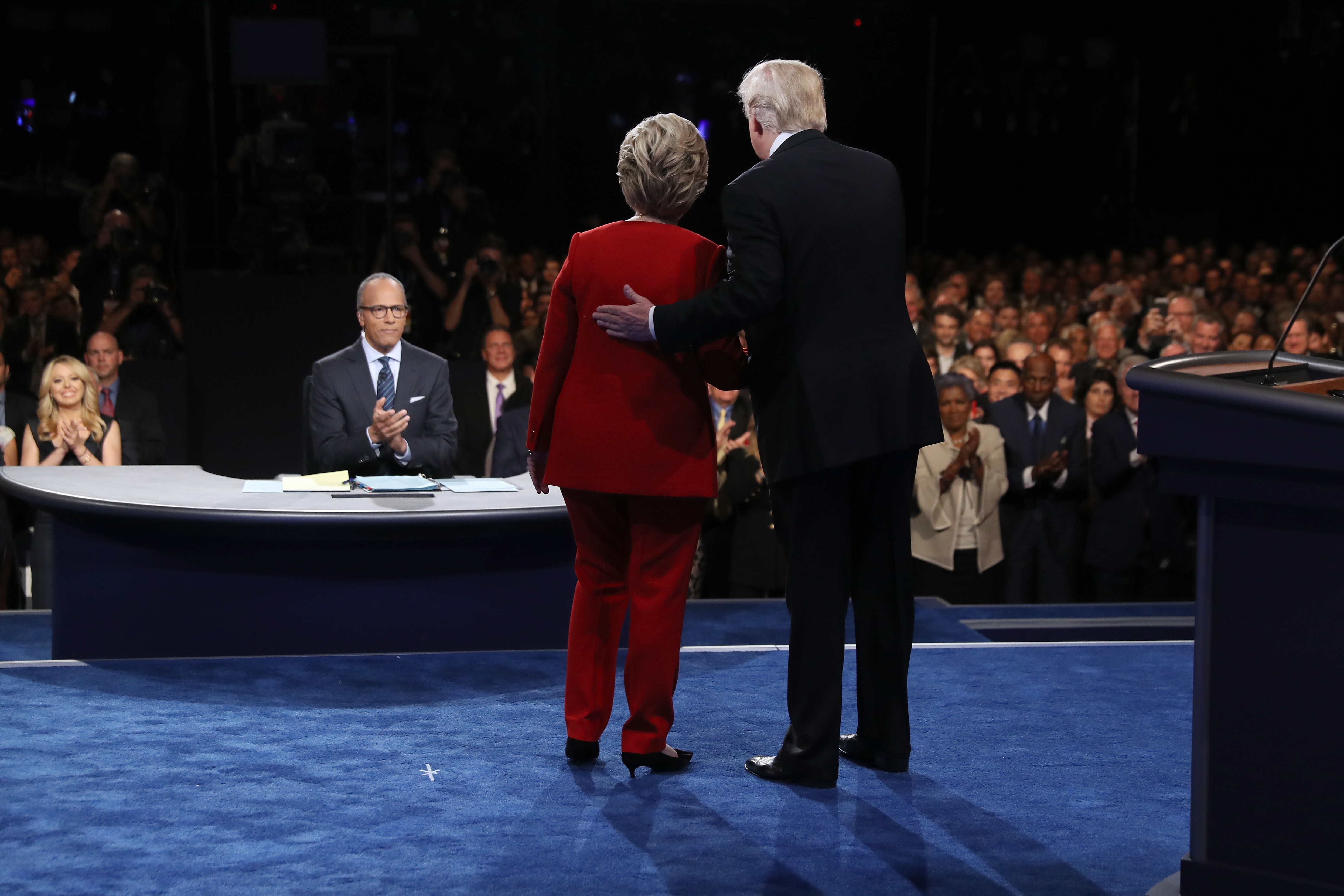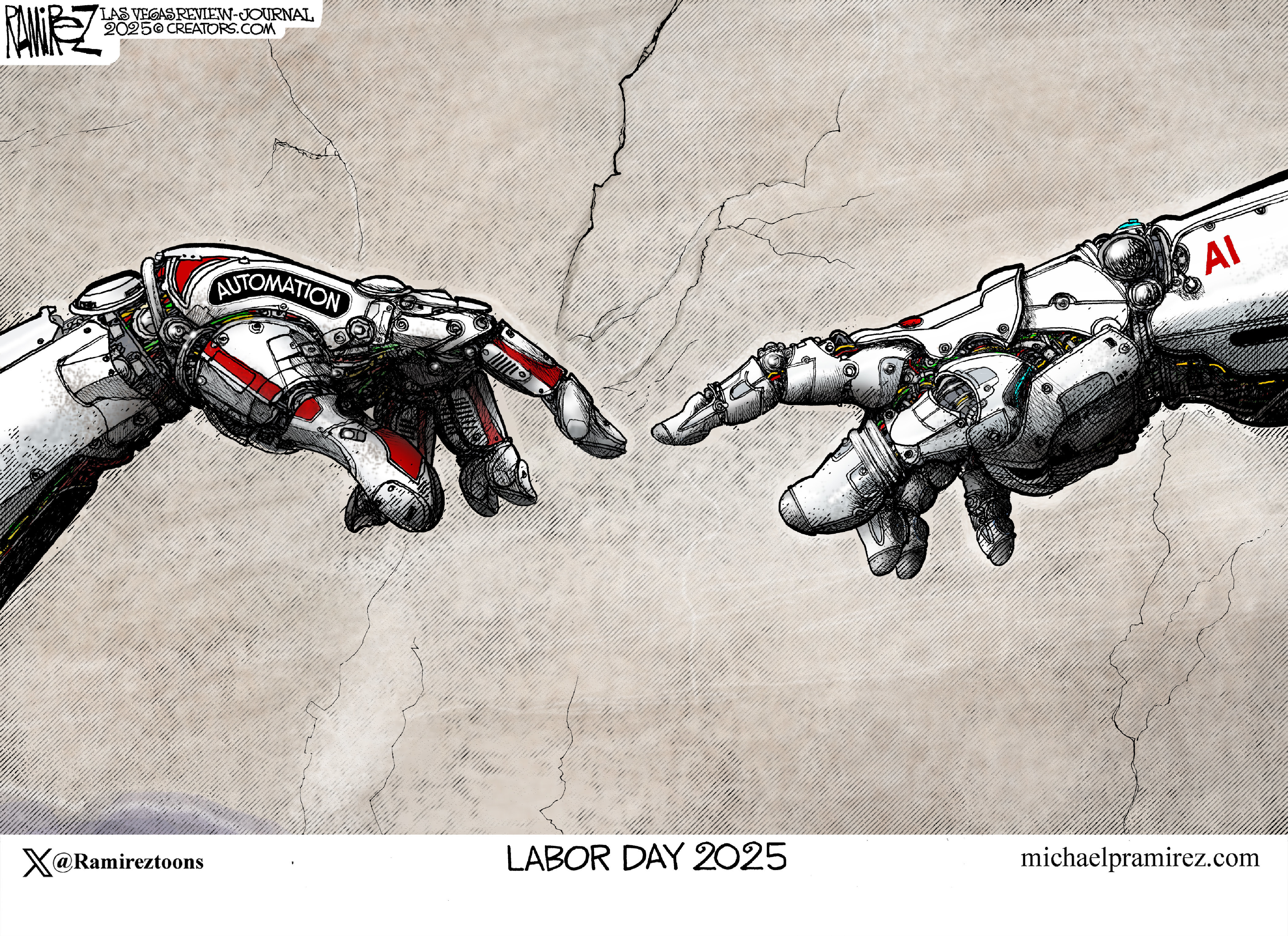Why the debate changed nothing
Donald Trump voters are done with politics as usual — even if it means throwing out standards of temperament, expertise, and fact


Monday night's presidential debate changed nothing fundamental about the race for the White House. Hillary Clinton was confident, cool, unflappable, possessing an easy mastery of policy detail across a range of subjects, as well as of her opponent's multitude of vulnerabilities. Donald Trump, meanwhile, was very much himself: hostile, erratic, easily baited by Clinton's provocations, prone to hyperbole and exaggeration, and amazingly adept at lying shamelessly.
That sounds like a Clinton wipeout. And judged by the standards that prevailed in American politics until roughly a year ago, it would have been. But we have passed through the looking glass, dear reader. And on this side of the pane, policy expertise and displaying what used to be thought of as "presidential" behavior no longer matter — at least not to the 40-something percent of American voters who tell pollsters that they plan on casting a ballot to make Donald J. Trump the 45th president of the United States.
Those voters appear to care about something else — something that places Trump and Clinton on opposite sides, not just of the usual partisan divide, but of a political and cultural chasm.
The Week
Escape your echo chamber. Get the facts behind the news, plus analysis from multiple perspectives.

Sign up for The Week's Free Newsletters
From our morning news briefing to a weekly Good News Newsletter, get the best of The Week delivered directly to your inbox.
From our morning news briefing to a weekly Good News Newsletter, get the best of The Week delivered directly to your inbox.
On one side — Clinton's side — is the political establishment, which includes policy intellectuals and consultants from both parties. This establishment takes a lot of heat, some of it justified, but let's take a moment to acknowledge that it's filled with extremely smart people who know stuff — a lot of stuff, about how to run an effective political campaign, about how to manage an $18 trillion economy, about how to act responsibly in the world.
On the other side stands Trump, the know-nothing populist upstart who led a successful revolt against the political establishment of his own party and whose most effective attacks on his Democratic challenger could just as easily be directed at the Republican Party of four or eight or 12 years ago.
Trump doesn't really attack Democrats as a party committed to a set of ideas he thinks are wrong. That's not because in his heart of hearts he's a closet liberal, as some Republican #NeverTrump dead-enders continue to insist. It's because Trump isn't animated by hatred of the Democratic Party. He's animated by hatred of them — all of them: The people from both parties who together run everything in Washington and who have turned the country into a disaster, as Trump never tires of putting it.
They're the ones who voted for NAFTA, who let the jobs be shipped abroad, who opened up the borders, who refuse to defend law and order, who voted for the Iraq War and then allowed ISIS to grow and spread, who allowed African-American neighborhoods to become crime infested, who care more about fighting Islamophobia than keeping Americans safe from terrorism.
A free daily email with the biggest news stories of the day – and the best features from TheWeek.com
Democrats are responsible for some of aspects of this disaster, Republicans for others, and still others can be laid at the feet of both parties. That is Trump's core message, and his most potent one. And those who resonate to it don't particularly care if the messenger knows what he's talking about, or if he plays by the rules written and enforced by the political establishment. Why does it matter if he releases his tax returns? Or knows what the word "temperament" means? Or says politically incorrect things about women and other groups? The very fact that they don't like it makes it even better, and more satisfying.
That's why the debate, for all of its fireworks and all of its Trumpian absurdity, will change nothing fundamental about the race: Clinton was a few points ahead going in, and there she will remain. A segment of the American electorate is ready to cash in its chips. Those voters are done with politics as usual — even if it means throwing out, right along with it, standards of fact and expectations about the knowledge and expertise and, yes, temperament that those who aspire to lead our country must possess.
It's not at all clear what might be done to bring those voters back from the brink, to get them to buy in once again to the old way of doing political business — the way that Hillary Clinton practices so competently.
All we can hope is that nothing in the country or the world — or in the remaining debates — pushes even more people into the camp of the rejectionists.
Damon Linker is a senior correspondent at TheWeek.com. He is also a former contributing editor at The New Republic and the author of The Theocons and The Religious Test.
-
 Nvidia: unstoppable force, or powering down?
Nvidia: unstoppable force, or powering down?Talking Point Sales of firm's AI-powering chips have surged above market expectations –but China is the elephant in the room
-
 5 hard-working cartoons about Labor Day celebrations
5 hard-working cartoons about Labor Day celebrationsCartoons Artists take on creation of AI, spelling mistakes, and more
-
 Codeword: September 7, 2025
Codeword: September 7, 2025The Week's daily codeword puzzle
-
 Ghislaine Maxwell: angling for a Trump pardon
Ghislaine Maxwell: angling for a Trump pardonTalking Point Convicted sex trafficker's testimony could shed new light on president's links to Jeffrey Epstein
-
 The last words and final moments of 40 presidents
The last words and final moments of 40 presidentsThe Explainer Some are eloquent quotes worthy of the holders of the highest office in the nation, and others... aren't
-
 The JFK files: the truth at last?
The JFK files: the truth at last?In The Spotlight More than 64,000 previously classified documents relating the 1963 assassination of John F. Kennedy have been released by the Trump administration
-
 'Seriously, not literally': how should the world take Donald Trump?
'Seriously, not literally': how should the world take Donald Trump?Today's big question White House rhetoric and reality look likely to become increasingly blurred
-
 Will Trump's 'madman' strategy pay off?
Will Trump's 'madman' strategy pay off?Today's Big Question Incoming US president likes to seem unpredictable but, this time round, world leaders could be wise to his playbook
-
 Democrats vs. Republicans: which party are the billionaires backing?
Democrats vs. Republicans: which party are the billionaires backing?The Explainer Younger tech titans join 'boys' club throwing money and support' behind President Trump, while older plutocrats quietly rebuke new administration
-
 US election: where things stand with one week to go
US election: where things stand with one week to goThe Explainer Harris' lead in the polls has been narrowing in Trump's favour, but her campaign remains 'cautiously optimistic'
-
 Is Trump okay?
Is Trump okay?Today's Big Question Former president's mental fitness and alleged cognitive decline firmly back in the spotlight after 'bizarre' town hall event
